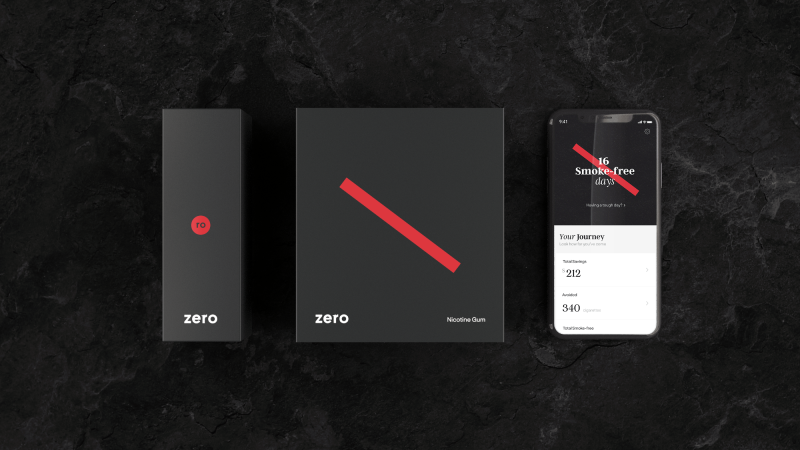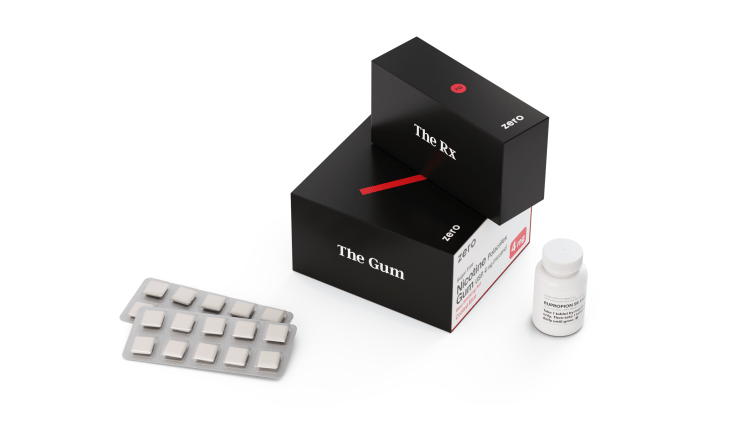Smoking is the most prevalent addiction worldwide, researchers say, with 22.5 percent of all adults partaking regularly. It’s also one of the most debilitating. More than 16 million Americans live with a disease caused by smoking, including (but not limited to) cancer, heart disease, stroke, and diabetes.
But it’s tough to quit. Only 3 percent of the more than 50 percent of smokers who try to give it up are successful, and those who eventually manage to quit make on average as many as 30 attempts. Those sobering stats led New York-based telehealth startup Ro (formerly Roman) to launch Zero, an “end-to-end” service that brings “the most effective smoking cessation practices” into a single program.
The launch comes on the heels of Ro’s $88 million funding round, which was led by FirstMark Capital, with participation from SignalFire, Initialized Capital, SignalFire, General Catalyst, Slow Ventures, Sinai Ventures, Torch Capital, BoxGroup, Tusk Ventures, and others. As part of the investment, FirstMark managing director Rick Heitzmann will join the company’s board of directors, along with Reddit and Initialized Capital cofounder Alexis Ohanian.
“The only thing that exceeds Ro’s execution to date is their vision for the future of health care,” Ohanian said in a statement. “Zero … leverages their infrastructure to tackle smoking: the leading cause of preventable death worldwide. Initialized is proud to support companies taking on such ambitious challenges. I couldn’t be more excited to join the board and be part of the journey.”
June 5th: The AI Audit in NYC
Join us next week in NYC to engage with top executive leaders, delving into strategies for auditing AI models to ensure fairness, optimal performance, and ethical compliance across diverse organizations. Secure your attendance for this exclusive invite-only event.
Zero’s treatment plan combines two clinical components — prescription medication and nicotine replacement therapy (NRT) — with an app that “guides [users] on their quit journey.” It’s built on Ro’s end-to-end service platform, which launched in 2017 as a combination storefront and cloud pharmacy for men with erectile dysfunction.
Here’s how it works: Users review questions about their medical history and smoking habits with Ro-Bot, a telehealth assistant, and verify their identity with a photograph and ID. Then a licensed physician follows up with a $15 virtual consultation. Ro doesn’t currently accept insurance, but it’ll refund the cost if the physician determines the individual is not a good fit for the program.

In the backend, Ro taps machine learning to flag both patients that make good candidates for telehealth appointments and complex cases that require a bit more human attention. It also highlights any and all contraindicators — i.e., conditions that serve as reasons to withhold treatment.
After the initial screener and review, Ro ships a Quit Kit — a $129 package containing bupropion (a prescription medication that helps control smoking cravings), nicotine gum, and instructions to download a companion app for iOS (and soon Android) — from the eponymous Ro Pharmacy Network. Should anything go wrong, Ro’s staff of pharmacists and physicians are available 24/7 via the app’s encrypted messaging platform.
Ro is careful to note that Zero isn’t intended to replace in-person doctor visits; it’s envisioned as a complement. That said, research suggests multimodal support solutions like Zero can substantially boost the chances of quitting compared to cold turkey approaches.
According to the Federal Food and Drug Administration (FDA), a combination of medication, NRT, and support can increase the quit rate at six months to 33 percent and at one year to 28 percent, compared to 8 percent for those who took a placebo. Cochrane reports that quitting nicotine with replacement therapy can increase the success rate by 50-70 percent.
“If Zero can increase the rate at which people stop smoking, we will unequivocally save lives and change the world,” said Ro CEO and cofounder Zachariah Reitano.
Ro’s initial $3.1 million round was led by General Catalyst, with participation from Y Combinator partner Aaron Harris, the CEOs of Codeacademy, Pill Pack, and Casper, and others. To date, the company has raised $91.1 million.


